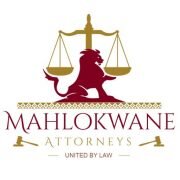Best Native People Lawyers in Benoni
Share your needs with us, get contacted by law firms.
Free. Takes 2 min.
List of the best lawyers in Benoni, South Africa
About Native People Law in Benoni, South Africa
Benoni, located in the Gauteng province of South Africa, is a city with a rich cultural history that includes the presence and contributions of Indigenous communities, often referred to as Native People or Indigenous People. Native People law in Benoni is shaped by both national and local legal frameworks which recognize the rights, heritage, and land claims of Indigenous communities. These legal provisions aim to protect their traditional lifestyles, access to ancestral land, cultural practices, and language rights while ensuring their participation in local governance and access to public services.
Why You May Need a Lawyer
Navigating the complexities of Native People law in Benoni can be challenging due to the intersection of customary law, national legislation, and municipal regulations. There are many situations where legal advice or representation may be essential, including:
- Pursuing land claims or resolving land disputes involving ancestral or community land
- Protecting cultural heritage sites and practices
- Dealing with evictions or the loss of access to traditional land
- Participating in mining, infrastructure, or development projects affecting traditional communities
- Challenging discrimination or unfair treatment based on Indigenous status
- Ensuring access to social services and government support
- Inheriting or transferring property according to customary law
- Defending against criminal charges or civil claims involving traditional practices
- Clarifying legal status and documentation issues
- Engaging with authorities or organizations about community rights and compensation
Local Laws Overview
Native People in Benoni are primarily affected by national legislation such as the Constitution of South Africa, the Restitution of Land Rights Act, and the Traditional Leadership and Governance Framework Act. These laws recognize the right of Indigenous communities to restitution of land, cultural preservation, and self-governance under the leadership of recognized traditional authorities. Additionally, municipal frameworks in Benoni may introduce by-laws that interact with these rights, for example regarding land use, heritage site protection, and participation in environmental assessments.
It is crucial to note that, while Indigenous and customary law is given recognition, it must always align with the broader principles of the Constitution, especially relating to human rights and non-discrimination. This ensures a balance between tradition and individual rights.
Frequently Asked Questions
Who qualifies as Native or Indigenous People in Benoni?
Native People generally include individuals and communities with deep-rooted historical and cultural ties to the land in and around Benoni, descending from the area's original inhabitants and maintaining traditional customs and social structures.
Can Native People claim land in Benoni?
Yes, under the Restitution of Land Rights Act, communities and individuals dispossessed of land after 1913 due to racially discriminatory laws may submit land claims. Legal assistance can help navigate these claims.
Are there special cultural rights for Native People in Benoni?
Yes, the South African Constitution and various acts recognize the right to maintain and protect Indigenous languages, customs, and sacred sites, subject to the law.
How does customary law apply in Benoni?
Customary law is recognized, especially in matters of marriage, inheritance, and community leadership, as long as it does not conflict with constitutional rights and public policy.
What should I do if I face eviction from traditional land?
Seek legal advice immediately, as evictions involving Indigenous land often require adherence to specific procedures and consideration of traditional rights.
How are traditional leaders recognized in the legal system?
Traditional leadership structures are recognized through the Traditional Leadership and Governance Framework Act. Their roles often include dispute resolution and representing community interests.
Can mining or development projects happen on ancestral land?
Mining and development are subject to environmental laws, public participation, and sometimes require formal consent from affected Native communities under national regulations.
What if my rights as a Native Person are violated?
You can lodge complaints with government bodies, seek advocacy from NGOs, or consult a legal professional specializing in Indigenous rights.
Is legal aid available for Native People cases?
Legal Aid South Africa and some local NGOs provide free or affordable assistance for qualifying individuals on matters such as land, housing, and discrimination.
Where can I find information about my legal status?
You can contact the Department of Rural Development and Land Reform, local traditional councils, or consult with a lawyer knowledgeable in Indigenous law.
Additional Resources
Several organizations and government departments can offer guidance and support to Native People in Benoni:
- Department of Rural Development and Land Reform
- Legal Aid South Africa
- South African Human Rights Commission
- Community Law Centres at South African universities
- Local traditional councils or chieftaincies
- South African Heritage Resources Agency
- Commission for Gender Equality (if applicable)
- Land Claims Court
Next Steps
If you require legal assistance related to Native People in Benoni, first gather all relevant documents regarding your situation, such as proof of land occupation, community membership, or correspondence with authorities. Next, consider consulting a lawyer who specializes in Indigenous or customary law. For those with low income, contact Legal Aid South Africa or a community law center. If your issue involves land or heritage sites, reach out to the Department of Rural Development and Land Reform or the South African Heritage Resources Agency. Seeking assistance early can help protect your rights and ensure the best possible outcome.
Lawzana helps you find the best lawyers and law firms in Benoni through a curated and pre-screened list of qualified legal professionals. Our platform offers rankings and detailed profiles of attorneys and law firms, allowing you to compare based on practice areas, including Native People, experience, and client feedback.
Each profile includes a description of the firm's areas of practice, client reviews, team members and partners, year of establishment, spoken languages, office locations, contact information, social media presence, and any published articles or resources. Most firms on our platform speak English and are experienced in both local and international legal matters.
Get a quote from top-rated law firms in Benoni, South Africa — quickly, securely, and without unnecessary hassle.
Disclaimer:
The information provided on this page is for general informational purposes only and does not constitute legal advice. While we strive to ensure the accuracy and relevance of the content, legal information may change over time, and interpretations of the law can vary. You should always consult with a qualified legal professional for advice specific to your situation.
We disclaim all liability for actions taken or not taken based on the content of this page. If you believe any information is incorrect or outdated, please contact us, and we will review and update it where appropriate.









